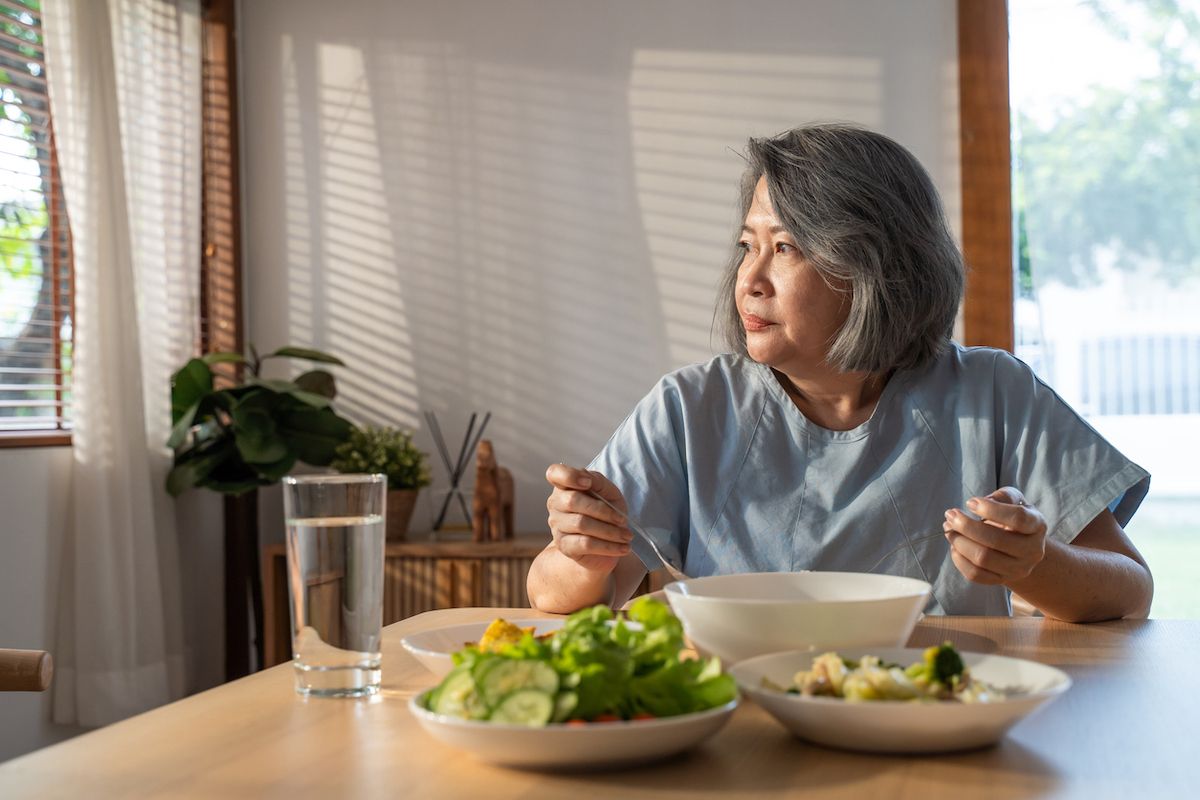Menopause Articles
Recent
Popular
Menopause is a biological process in people with gynecological reproductive systems, often starting around middle age. When menopause begins before age 40, it is called “early menopause.” Menopause occurs when one’s body gradually stops menstruating or after surgery to remove reproductive organs. After the cessation of menstruation, individuals can no longer get pregnant and give birth.
In this section, you will find articles about menopause, what causes this process, the symptoms to expect, and how to manage the physical and emotional challenges that may occur during the process. You’re not alone in this phase in your life.
More Menopause articles
Explore more on Menopause
Medically reviewed by Andrea Brant, LMHC
Symptoms of menopause: Night sweats, hot flashes, and emotional challenges
Menopause is a natural bodily response in people with gynecological reproductive systems that most often occurs in their late 40s to mid-50s. When menopause begins, several hormonal processes become slower, and one’s menstrual cycle ends. There may be spotting and other symptoms during this time.
The hormonal changes that occur during menopause cause physical and emotional challenges. The physical difficulties may include hot flashes, night sweats, chills, decreased libido, and sometimes hair loss. While the mental and emotional challenges are different, going through menopause can sometimes prompt psychological challenges, such as depression or anxiety.
How the menopausal transition can affect mental health
The beginning of menopause often marks the end of one’s chances to have children from their body. For some people, making the transition into menopause is difficult emotionally, especially when it occurs early. You might struggle with the idea of being unable to have children or the hormonal changes that occur.
Menopause can be like moving from the first part of your life into the middle section - a transition that causes anxiety for some people. For others, it may cause depression. Change can be challenging, compounded by the hormonal effects, which can intensify the genuine mental and physical challenges already occurring.
Anxiety during menopause
It can be normal to experience some anxiety during menopause. When your body experiences rapid changes, it can be scary. In addition, it may not be easy transitioning from one part of your life to the next. You might not be sure what to expect from one day to the next. One day, you might have insomnia, and the next, you might sleep well. Perhaps you’re experiencing hot flashes one evening, and the next night, you are depressed. Night sweats and the increased risk of heart disease during menopause can also contribute to feelings of anxiety.
Menopause can be unpredictable, which can cause anxiety. Be honest with your partner or loved ones if you are experiencing anxiety or other mental health challenges related to menopause. They may be able to support you during this time.
How to cope with menopause
Menopause can be challenging. Whether you’re dealing with hot flashes or riding the emotional rollercoaster that can accompany the transition from the first part of your life to mid-life, you may not know which symptoms to address first.
One way to cope with menopause is by talking to a medical provider about your struggles. Try to discuss all challenges—not only the physical. Mood swings are a natural part of menopause, and you may benefit from discussing how they impact your daily life. Whether waking up in a cold sweat or switching from angry to sad in moments, you’re experiencing real symptoms. Incorporating heart-healthy habits, such as regular exercise and a balanced diet, may also help reduce the risk of heart disease during this stage.
Addressing the physical and emotional symptoms of menopause and hormone therapy during the menopausal transition
If you experience more severe emotional challenges, counseling may also be valuable. In addition, seeing a therapist specializing in menopause transitions can help people going through menopause cope with their emotions. Therapy can offer an opportunity to reconnect with yourself, understand what makes you happy, and indulge in your favorite activities again.
You don’t have to go through menopause alone. Many mental health support options are available online and in person. Through an online platform like BetterHelp, you can receive support from a compassionate professional at a time that works for you. Online platforms are also more cost-effective and allow you to meet with a provider via phone, video, or live chat sessions from home.
Studies also back up the effectiveness of online therapy. One study found that 71% of participants of online therapy found it more effective than in-person modalities, with 100% reporting the platform was more convenient for them.
Takeaway
Menopause is a unique process that occurs in people going through natural aging and those who may have their uterus removed via surgery. To learn more about menopause, it may be helpful to investigate the articles above or reach out to a therapist online or in your area for support.

